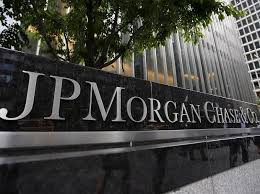
Date: 9 October 2020
Authors: Abhishek Manikandan, Michelle Price
Source: Reuters
On Tuesday, US authorities announced that JPMorgan Chase & Co has admitted to wrongdoings in market manipulation in trading of metal futures and Treasure securities. They have agreed to pay more than $920million - $436.4 million in fines, $311.7 million in restitution and more than $172 million in disgorgement, said the Commodity Futures Trading Commission (CFTC), the biggest-ever settlement imposed by the derivatives regulator.
This landmark multi-agency settlement marks a signature victory for the government’s efforts to clamp down on illegal trading in the futures and precious metals market, lifting a regulatory shadow that has hung over the bank for many years.
Between 2008 and 2016, JPMorgan engaged in a pattern of manipulation in the precious metals futures and U.S. Treasury futures market, the CFTC said. Traders would place orders on one side of the market which they never intended to execute, to create a false impression of buy or sell interest that would raise or depress prices, according to the settlement.
This manipulative practice, which is designed to create the illusion of demand, or lack thereof, is known as “spoofing.”
Some of the trades were made on JPMorgan’s own account, while on occasions traders manipulated the market to facilitate trades by hedge fund clients, the CFTC said. The bank failed to identify, investigate, and stop the behavior, even after a new surveillance system flagged issues in 2014, the agency said.
“The conduct of the individuals referenced in today’s resolutions is unacceptable and they are no longer with the firm,” said Daniel Pinto, co-president of JPMorgan and CEO of the Corporate & Investment Bank.
He added that the bank had invested “considerable resources” in boosting its internal compliance policies, surveillance systems and training programs.
In parallel settlements, the bank entered into a Deferred Prosecution Agreement with the Department of Justice and the United States Attorney’s Office for the District of Connecticut, staving off criminal prosecution on charges of wire fraud.
It also agreed to pay $35 million to settle related charges with the Securities and Exchange Commission, although the bank’s payment to the CFTC would offset that fine, it said.
In an unusual concession, JPMorgan also admitted wrongdoing in agreeing to the SEC and Justice Dept. settlements.
“This record-setting enforcement action demonstrates the CFTC’s commitment to being tough on those who intentionally break our rules, no matter who they are. Attempts to manipulate our markets won’t be tolerated,” said CFTC Chairman Heath Tarbert.
The CFTC and Justice Department have taken aim at spoofing in recent years, using sophisticated data analysis tools to spot potential wrongdoing that it could not previously detect.
Reuters has reported that around 2017, the agency began using techniques it originally developed to spot healthcare fraud schemes to identify suspicious trading patterns, including by scanning activity on exchanges.
“The idea was: let’s mine this data source to see who the worst actors are,” Robert Zink, a top Justice official who helped lead the effort, told Reuters in May here.
The agency has already charged six JPMorgan traders for manipulating metals futures between 2008 and 2016. On Friday, meanwhile, two former Deutsche Bank AG traders were found guilty here by a federal jury of spoofing, the agency said.
Keyword: sterlinghousetrust.com, Sterling House Trust, SHT
Sterling House Trust is a private trust with a difference. It offers its members an exclusive and reliable platform to access unique opportunities and lifestyle services reserved for the select few. With its team of professional managers Sterling House Trust constantly scans the markets and collaborate with reliable global partners to create a portfolio of carefully curated programmes for its members. Members can access these programmes according to their individual needs, interest and financial capacity. Sterling House Trust is headquartered in Auckland, New Zealand, and has operations based in London, UK.
The Sterling House Trust platform was established with the objective of providing its members, secure access to opportunities across a range of global locations, sectors and services.

Our unique Platform was established within the framework of a trust so that the trust would have oversight and governance over the range of services and its quality. Member protection is a core principle and drive in all that we do. Our trustees ensures that the interests and quality of service provided by the Platform are always maintained at the highest standards.
The trust and its trustees provide robust oversight and is constantly on the move to identify and shortlist select opportunities in the international markets. Likewise, we apply the same stringent standards in identifying and selecting providers and professional partners to join our Platform.
The Sterling House Trust Platform utilises our international footfall and relationships to provide our members with access to a range of international opportunities via our global network which covers a broad range of sectors including:
Asset protection, international property ownership and management, alternative and direct ownership, estate planning, banking services, foreign exchange, card services, alternative investment and lifestyle services.

New Zealand Head Office
31/335 Lincoln Road,
Addington
Christchurch
New Zealand
London Office
14-16 Dowgate Hill,
London,
England EC4R 2SU